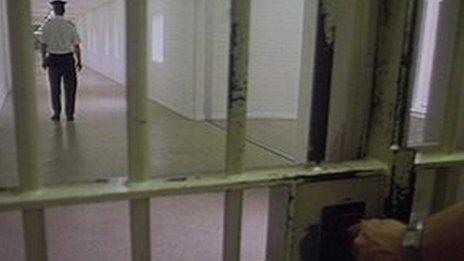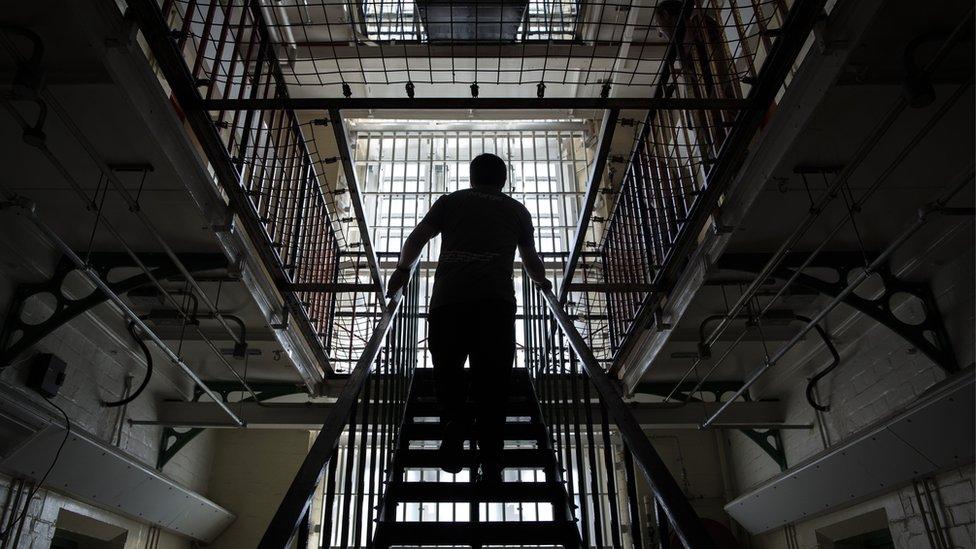Cambridge Coroner says alert system access poses risk of future deaths
- Published

Lewis Powter's IPP was like a "life sentence" his family said.
There is a risk of people dying after release from an Imprisonment for Public Protection (IPP) sentence if agencies do not have access to the same alert systems, a coroner has said.
Lewis Powter, 36, died of a heroin overdose at his flat in Sawston, Cambridgeshire, in May 2020.
People on IPP sentences can be recalled at any time and Mr Powter felt like he had a "life sentence", his family said.
They said more work was needed to support IPP prisoners after release.
IPPs were designed for the most violent and sexual offenders but were abolished in 2012.
Under an IPP people could be recalled following release, something which Mr Powter constantly feared after four recalls before his death in 2020, the coroner's court in Peterborough heard.
In 2007 Mr Powter, then 23, was handed an IPP with a minimum tariff of two years for grievous bodily harm but was not released until 2011.
Mr Powter was recalled to prison four times before his final release in November 2019, which his family say exacerbated mental health problems including anxiety, PTSD and drug use.
'IPP impact profound'
On 4 May 2020 he was told he had been reported for a common assault and would face court proceedings which also impacted his fear of prison recall, the coroner said.
Lorna Skinner, assistant coroner for Cambridgeshire, said Mr Powter suffered from increased anxiety about being recalled to prison at any time.
She said: "In relation to the IPP sentence, I am in no doubt that the effect of it on him was profound.
"He faced the constant stress and anxiety of recall to prison which was hanging over him indefinitely in circumstances where, due to his own mental health difficulties, his resilience and ability to cope with the pressures upon him was inevitably compromised."
'Obvious risk'
Ms Skinner said she was concerned about a risk of future deaths because not all agencies involved in Mr Powter's care after his release in November 2019 were able to access the same systems.
Mr Powter was being supported by the probation service, mental health services run by Cambridge and Peterborough NHS Foundation Trust (CPFT) and the charity Change Grow Live.
Both the probation service and CPFT had access to a system where they could alert each other to potential concerns but the charity, who had increased his risk level, did not have access to the system.
She said: "I have a concern where some agencies have access to a shared communication facility but others don't, that generates an obvious risk of information being missed or overlooked."
She said this concern was related to offenders who, like Mr Powter, were on a pathway that involved less "interactive multi agency communication" and she would write a prevention of future deaths report.
Mr Powter's aunt, Gianna Biamonti-Bellow, said: "We are pleased with the outcome, the inquest and the fact the coroner recognised the impact of the IPP as much as she could within her role. We believe as a family that as a direct consequence of the IPP it led to his death."
"IPPs can make people feel very hopeless... if this can help get better care for other people on IPPs that's what we wish for, it's important to us as a family".

Find BBC News: East of England on Facebook, external, Instagram, external and Twitter, external. If you have a story suggestion email eastofenglandnews@bbc.co.uk, external
Related topics
- Published3 March 2020

- Published18 September 2012

- Published19 March 2021
